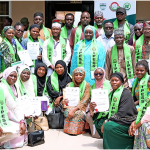



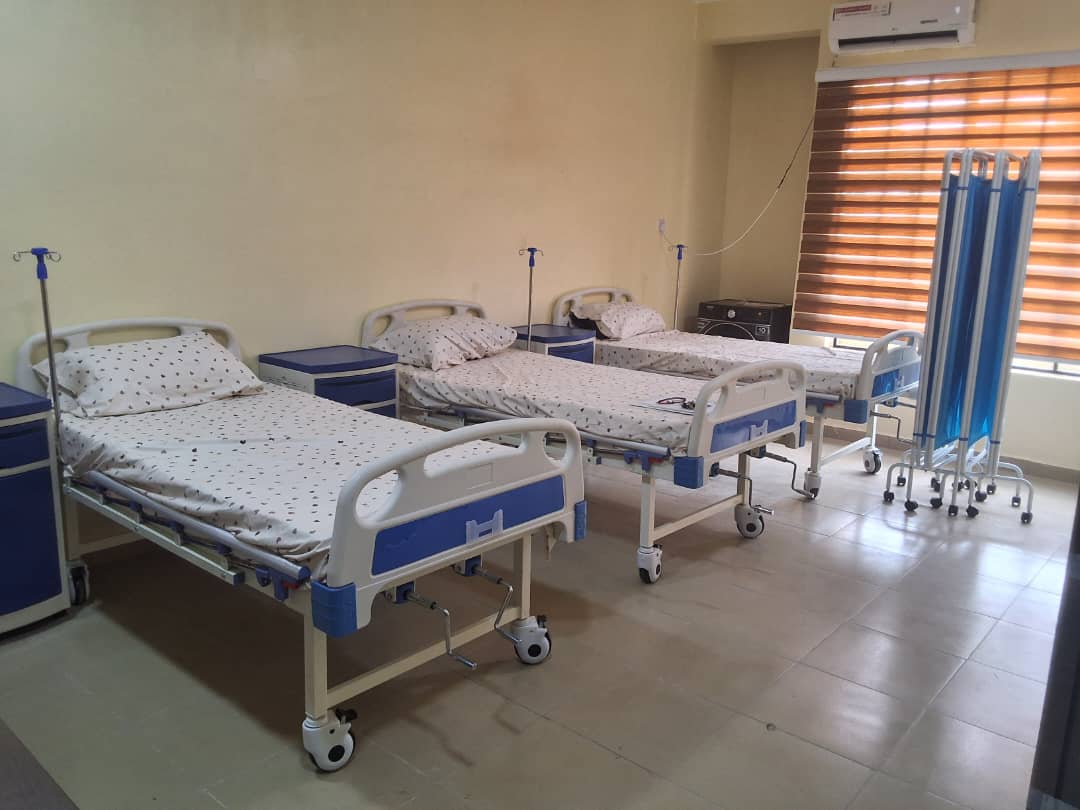

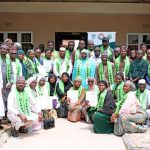
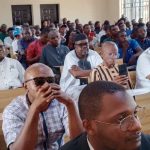
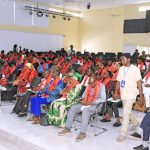

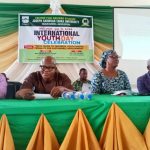
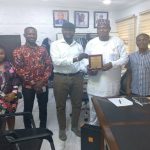
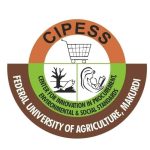
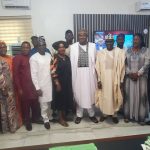
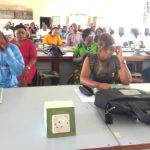
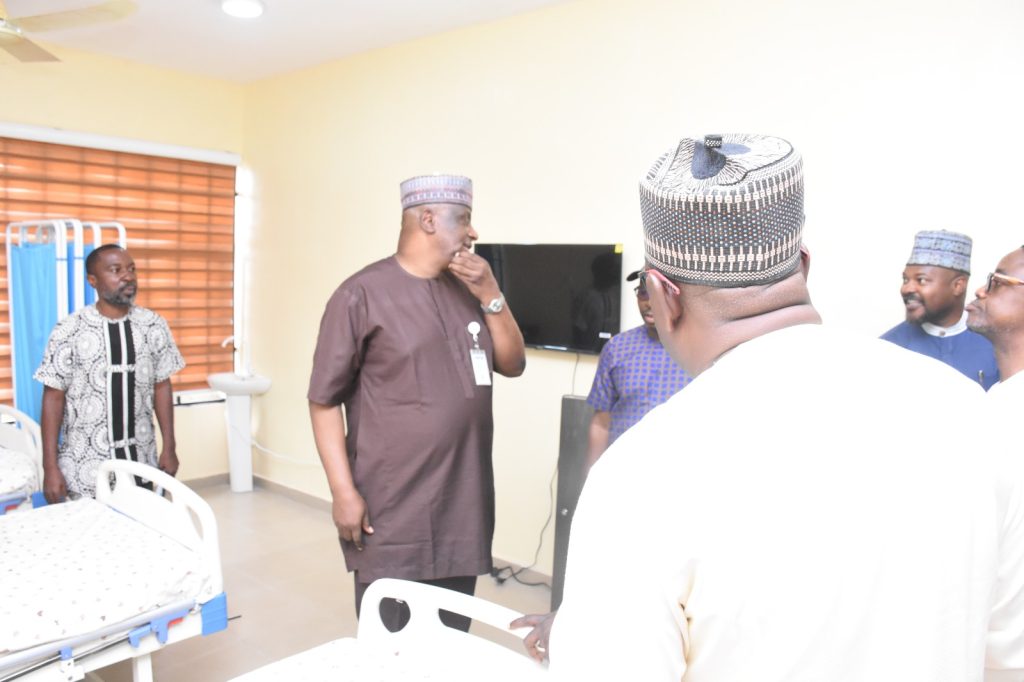
The Vice Chancellor, Joseph Sarwuan Tarka University Makurdi, (JOSTUM) Engr Professor Isaac N. Itodo has expressed satisfaction on the human and infrastructural impact made on the University by the Institute of Procurement, Environmental and Social Standards (IPESS).
Engr Professor Isaac Itodo made his feelings known on 1st August 2025 during the official commissioning of the landscaping and sickbay projects executed by IPESS JOSTUM at engineering complex where the Institute’s building is located. The Vice Chancellor thanked the Management of the Institute led by Professor Lami A. Nnamonu for making the University feel the tremendous impact of the Sustainable Procurement, Environmental and Social Standards Enhancement (SPESSE) project.
Engr Professor Itodo reiterated that, as the flagship program of the University, IPESS has also taken the University to a higher rung of the Universities’ ranking ladder. The Vice Chancellor pledged his administration’s commitment to continue to support the management team of the Institute to enable them to achieve greater results.
Stating the brief overview of the SPESSE project, the Academic Program Coordinator of Environmental Standards, Professor Ebenezer J. Ekefan stated that, IPESS JOSTUM is one out of the six Centers of Excellence domiciled in the six geopolitical zones of Nigeria. According to Professor Ekefan, IPESS JOSTUM is saddled with the responsibility of building sustainable human capacity in the areas of procurement, environmental and social standards in the north central region of Nigeria and beyond.
The Academic Program Coordinator appreciated the Vice Chancellor and his entire management team for their ceaseless support which has facilitated the smooth running of activities at the Institute. He assured that the management of the Institute will continue to put in more efforts inline with project stipulated guideline for the attainment of set objectives.
The Deputy Center Leader, Social Standards, Professor Adolphus A. Naswem on behalf of the Center Leader and Director, Professor Lami A. Nnamonu thanked the Vice Chancellor for his dynamic leadership style that has unequivocally yielded positive results and has put the University on the pedestal of glory. He added that the Management of the Institute is proud and will continue support the policies of the present administration for the mutual benefit of all.





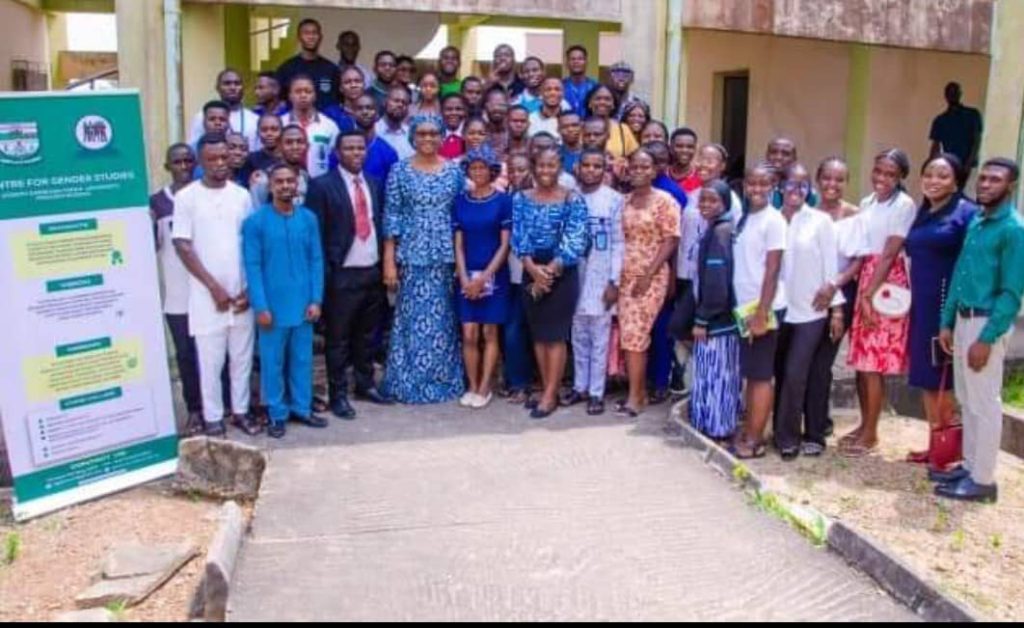
Commemorating the 2024 International Youth Day, the Center for Gender Studies, Joseph Sarwuan Tarka University, Makurdi organized a one-day symposium with the theme: “FROM CLICKS TO PROGRESS: YOUTH DIGITAL PATHWAYS FOR SUSTAINABLE DEVELOPMENT.”
The event was held on Monday, 12th August, 2024 at the College of Agricultural Economics and Extension Auditorium, North Core.
In his opening remarks, the Vice Chancellor, Engr. Prof. N.I Itodo represented by the Deputy Vice Chancellor Academic, Prof. Fidelis Ayatse charged the participants to make good use of the event as it x-rays the opportunities and challenges youths face in accessing digital technology. He urged them to utilize the knowledge to foster positive change.
In her welcome address, the Organizer and Director, Center for Gender Studies, Prof. Mrs. Orefi Abu said the International Youth Day is a day chosen by the United Nations celebrated globally every year to recognize young people’s vital contributions – and the need to release the potentials that they hold towards development and global economy. She added that the Day also recognizes their challenges and how to reduce them.
Prof. Abu noted that this year’s theme highlights the role of digital technology in achieving sustainable development goals – and draws attention to the important roles that youths play in these innovative processes.
She said that as young people, they have the ability to use their digital skills to promote sustainable development, and positive changes both within and outside our communities. She declared that the Center is ready to collaborate with the Student Union and other associations in the University to mark this day, going forward.
In the lead presentation titled “SIGNIFICANCE OF DIGITAL LITERACY FOR YOUTH EMPOWERMENT: CHALLENGES AND OPPORTUNITIES,” Dr. Chris Eche defined digital literacy as the ability to effectively and critically navigate, evaluate and create information using a range of digital technologies. He said there are two sets of people in the digital space; those who are able to critically navigate and those who are able to create information. He outlined the different levels of digital skills to include; Basic digital skills, Internet and communication skills, Information literacy, Literacy skill set, Content creation level, Cyber security and Problem solving.
Dr. Eche acknowledged that digital literacy is crucial for empowering the youth in various aspects of life from education and employment, to civic participation and personal development. He stated that while there are challenges to achieving digital literacy there are also significant opportunities to address these challenges through targeted policies, educational reforms, community initiatives, and innovative learning.
Presenting the second paper titled “YOUTH AND DIGITAL ADVOCACY: THE POWER OF SOCIAL MEDIA FOR SOCIAL CHANGE AND SUSTAINABLE DEVELOPMENT,” Dr. Mrs. Hephzibah O. Obekpa observed that in an increasingly advancing world, digital literacy has been identified as a powerful tool for driving social change. She said Social media platforms are not just for communication but powerful travel engines for organization and activism.
She pointed out that the power of the youth in digital advocacy can be explored through their unique perspectives and passion, creativity and innovation, energy and resilience, education and knowledge, social media movement, policy influence and intergenerational collaboration.
Furthermore, She explained that Social media for change and social development should be one that uses the resources responsibly with the next generation in mind – emphasizing that any change that has to be sustainable must look beyond the current generation.
Dr. Obekpa concluded that young people are not the leaders of tomorrow but change makers of today. She said digital liaising offers unprecedented opportunities for youths to amplify their voices, influence policies, and drive social change on a global scale; therefore, it is crucial that young advocates are equipped with skills, knowledge, and critical framework to navigate effectively and responsibly.
Speaking on the topic “YOUTH AND MENTAL HEALTH IN THE DIGITAL AGE” Dr. Nathaniel Iber said everybody loves good health whereas mental illness is an enemy of progress and it cuts across all ages. He noted that whenever a persons abnormal thoughts, feelings or sensory impressions cause him objective or security harm mental health is said to be present.
Dr. Iber explained that mental health could be caused by alcohol, excess stress and inability to organize time well. He opined that social media has become an integral part of youths’ lives, affecting their self esteem, body image, and overall mental well-being.
The Doctor said the impact of social media could result in anxiety and depression through cyber bullying, online harassment and digital addiction however it also provides platforms where one can seek help, like, seeking online therapy and also digital literacy and education.
In a closing remark Prof. Solomon Shola suggested that the University should enter into partnership with a Company to provide incoming students with tablets so as enhance easy access to information through their years of study.
He thanked the organizers of the event and hopes that the programme be sustained.
The event witnessed sessions of questions and answers, as well as drama presentation.
